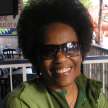What's In A Name? The Enduring Language Of Bias
Critiquing the words we use

The language we use to speak and to write is not accidental. It is the essence of our identity - a powerful indicator of who we are, and what we stand for. Language defines us, as it shows how we see ourselves. We will only ever use words we are completely comfortable with; the words that come easily to us without thinking; the ones our family and friends use; the words that tell where we are coming from and where we are going. Thus the language we use identifies us and our mindsets, revealing what we value and care about by the specific words we choose to utter.
For example, most people do not go round using a term like 'golliwog' to describe a Black person, especially in 21st century Britain, because the word was deemed publicly offensive some time back due to its questionable roots and deliberate unflattering caricature of a Black image. Hence when we easily use racist and derogatory words, we say a lot about how we perceive others who are different, how we regard people who might not share our skin colour, and how we easily relegate them to be undeserving of respect and inclusion in order to maintain feelings of superiority.
So how does the language we use uplift or degrade us?
When Britain recently commemorated the anniversary of the Abolition of the Slave Trade, it got me thinking about the real legacy of slavery on people of African heritage, particularly how we have perceived ourselves since those bad old days, and the names we still use.
Yet, the names we choose for ourselves do matter. They are clear signs of personal confidence, self-perception, cultural and emotional identity and future potential, or the baggage of bias we have carried through the ages. For example, every word in the English language connected with the word 'black' is full of nastiness, darkness and foreboding, and I won't even quote Shakespeare to prove it. Courtesy of my thesaurus, the colour white is 'virginal, unblemished, immaculate, innocent, pure'. Black is 'dark, murky, funereal, evil, villainous, wicked!' They may be just words on a page but they reflect the anxiety of the people who first gave them meaning and demarcated human beings into roses and rejects. Worse still, constant daily usage ensures their transformation into lethal psychological weapons for those affected by it.
Personally, I prefer Black Briton. I might have descended from a slave but I do not have to be one in my thoughts and mentality. As Bob Marley sang: "Emancipate yourself from mental slavery, none but ourself can free our mind." Being a Black Briton, is a conscious decision. I am not a member of an 'ethnic minority' because minority emphasises being out of the majority; on the periphery of the mainstream looking on longingly, but never allowed the opportunity to join that privileged majority. That label also implies that only minorities are 'ethnic', when we all belong to an ethnic group.
Being 'Black' also emphasises that, though I may not be a member of the White majority, I am equally proud of who I am and where I hope to go. I used to be a Jamaican, representing the land of my birth. Deep within me I will always have a fondness for, and a sort of wonder, that a tiny little island has had such a phenomenal impact on the rest of the world through creativity, music and sports! But Jamaica represents my history, not my future. Regardless of how my ancestors got to Jamaica, someone elsewhere decreed that I should be a Jamaican and I am very proud of my roots.

Yet, at a time when racist folks continually threaten to make life uncomfortable for all Britons, and others talk of 'apology', 'repatriation' and 'compensation', there will have to be one person standing aside from all that to take a different view - me. I have no wish to return to my past because there is nothing happening back there. The past is important for placing us in time and noting the significant moments in our history: for reference, not for residence. A concentration on the past robs us of both a present and a future.
So, whether I like Britain or not, this is now my home, not Jamaica, not Africa not anywhere else. My ancestors could not choose to go to Britain. They were forced to be here. But I had the choice of going to America, Canada, Europe - mostly anywhere I wanted to, and I chose the UK. I adore this country and wouldn't live anywhere else. That was a conscious choice and has remained so. This is where I live; where I've spent many wonderful years, where my children will be living when I am gone and where I wish to contribute my skills to enable a more fulfilling life for myself and others.
Self-knowledge comes gradually over time and one thing has always fascinated me about the semantics of identity, especially in America. It seems that all the weak minority groupings attach a prefix to who they are: like Hispanic-Americans and African-Americans. The White ruling class, the one with the power and the resources, the media and the control, have jettisoned any overt claim to their roots and simply settled for being 'Americans'! Are they saying that they're the only true Americans? Could that be the secret of their success? I suppose if we are not serving two masters there will be only one set of instructions. European Americans have moved away from trying to prove their existence because, having proven it already, regardless of how they did it, they now flaunt it proudly.
On the other hand, Black Britons, and to a large extent, African Americans, are still trying to prove themselves, through the use of carefully chosen language (like Black Lives Matter). But, despite that sense of shared experience, deep divisions are obvious among us, along with a basic lack of self-respect, reflected in the language often used forBlack women, the obsession with the 'right words' and clothing labels, an even stronger obsession with things African - but from a distance - and a negative, inward looking perspective which helps to rob our children of their birthright and the security needed for them to belong.
Words do matter, and our choice of words decides our future.
#history #white #black #slavery #identity #african #self-esteem #legacy #language
RELATED POST: Would One Person Calling You 'Ugly' Destroy Your Self-Esteem?
• Like this post? Action speaks louder than intention. Show your appreciation with a SUBSCRIPTION and even a TIP. Thanks for your support!
About the Creator
Elaine Sihera
British Empowerment Coach/Public speaker/DEI Consultant. Author: The New Theory of Confidence and 7 Steps To Finding And Keeping 'The One'!. Graduate/Doctor of Open Univ; Postgrad Cambridge Univ. Keen on motivation, relationships and books.
Enjoyed the story? Support the Creator.
Subscribe for free to receive all their stories in your feed. You could also pledge your support or give them a one-off tip, letting them know you appreciate their work.






Comments
There are no comments for this story
Be the first to respond and start the conversation.